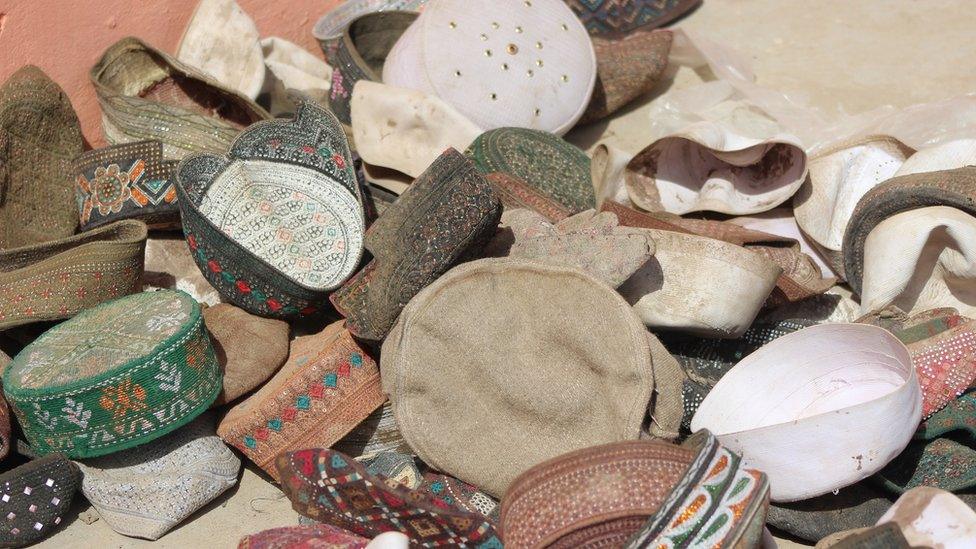Afghan violence: Taliban bomb kills many amid peace talks with US
- Published
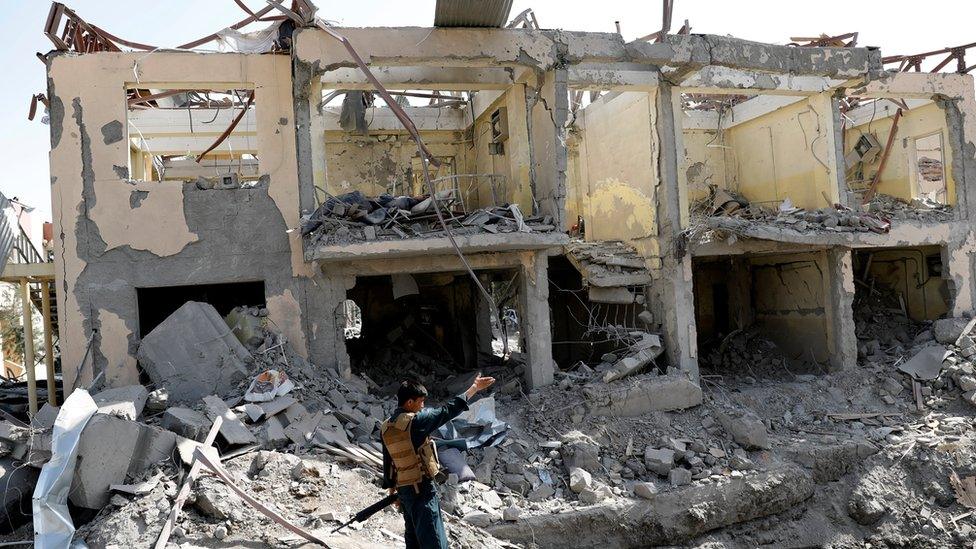
Buildings on the site of the blast now lies in ruins
A huge bomb outside a police station in the Afghan capital Kabul has killed at least 14 people and injured nearly 150.
The explosion sent a large plume of black smoke into the sky and left nearby buildings in ruins. Most of those wounded were civilians.
The Taliban say they carried out the attack.
It comes amid peace talks between the Taliban and the US, which aim to bring a nearly 18-year conflict to an end. Both sides say they have made progress.
Afghanistan's interior ministry said a car bomb was used in the attack, but the Taliban said they had detonated a truck bomb, which is much larger. The Taliban also claimed they had targeted a "recruitment" centre and had killed a large number of police and soldiers.
Interior ministry spokesman Nasrat Rahimi said the vehicle carrying the explosives had been stopped at a checkpoint outside the police station. It was during these security checks that the bomb was detonated.
One witness told the BBC: "I was driving in the area when I heard a terrible sound of the explosion, and my car was shaking. Right after that, I saw windows of nearby shops blowing up."
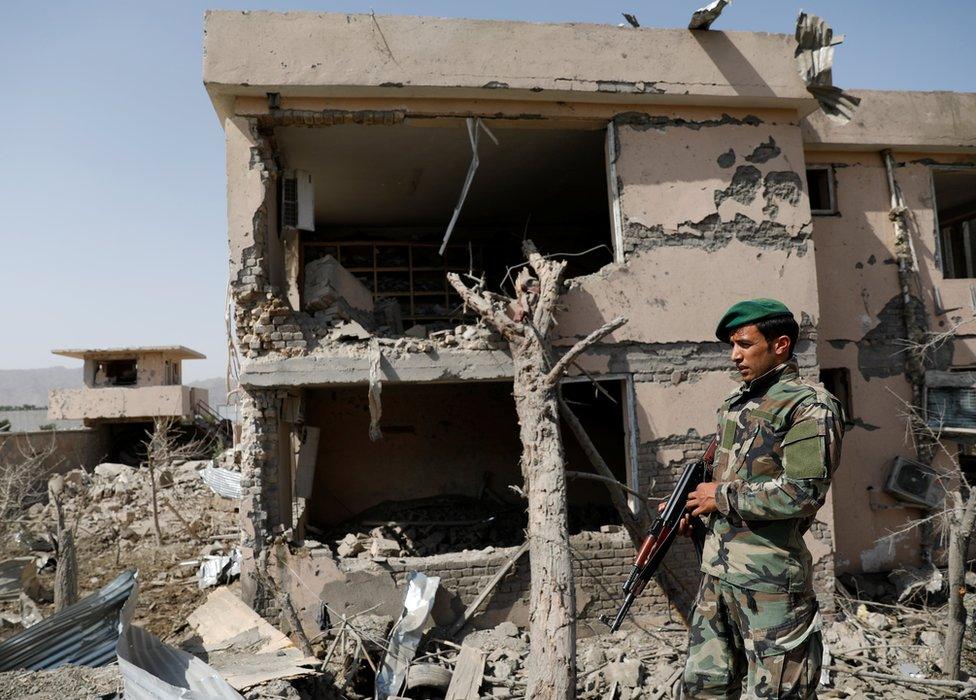
Officers from the Afghan army have been inspecting the site of the explosion
Despite the Taliban and the US being close to a historic pact, there has been a recent surge in attacks across the country.
In the last month alone about 1,500 people have been killed or injured. On Tuesday another bombing in Kabul, targeting a vehicle carrying workers from the counter-narcotics directorate, killed five people and wounded seven.
The Taliban also called for a boycott of the country's 28 September presidential election, and threatened to attack election rallies.
Sediq Sediqqi, spokesman for President Ashraf Ghani, told a news conference on Wednesday: "Continued Taliban attacks indicate that they have no commitment to peace, unfortunately. Any Taliban attack will impede the peace process."
Allow X content?
This article contains content provided by X. We ask for your permission before anything is loaded, as they may be using cookies and other technologies. You may want to read X’s cookie policy, external and privacy policy, external before accepting. To view this content choose ‘accept and continue’.

Is Afghanistan any closer to peace?
An end to the violence that has plagued Afghanistan for years is still some way off, but the positive signals given after this weekend's talks have raised hopes of a breakthrough.
US Special Representative Zalmay Khalilzad had cited "excellent progress" in the weekend's talks in Qatar, and said that technical discussions would continue.
Earlier this year, the BBC was given exclusive access to Afghan ambulance workers
The deal includes a phased US troop pullout in exchange for Taliban guarantees that Afghanistan will not be used by extremist groups to attack American targets.
The Taliban would also begin negotiations with an Afghan delegation on a framework for peace including an eventual ceasefire. The militants have been refusing to negotiate with the Afghan government until a timetable for the US withdrawal is agreed upon.
The Taliban now control more territory than at any point since it was toppled from power in 2001.
Figures this year revealed Afghan and US forces killed more civilians in Afghanistan in the first half of 2019 than insurgents did.
- Published11 March 2019
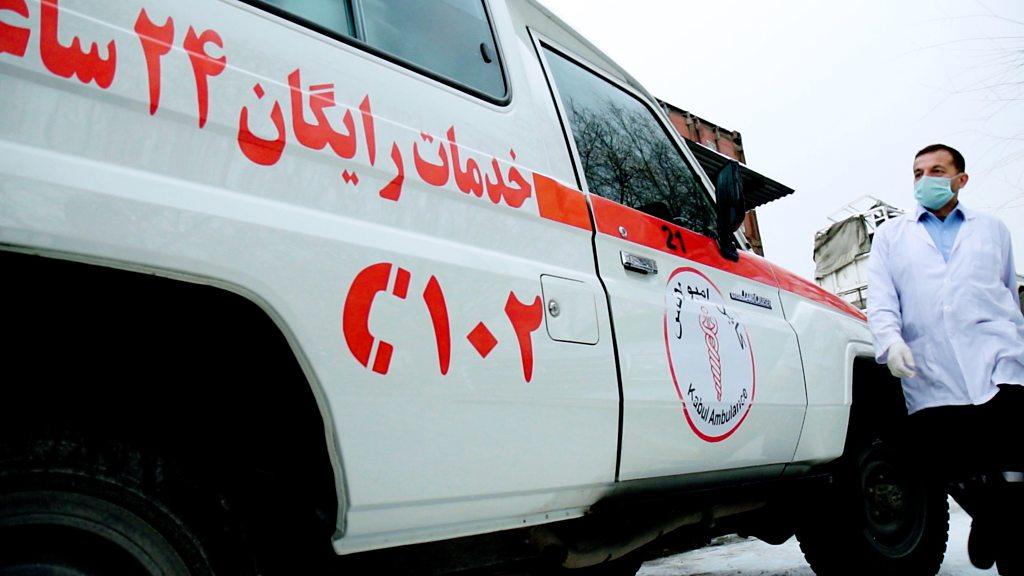
- Published14 July 2019
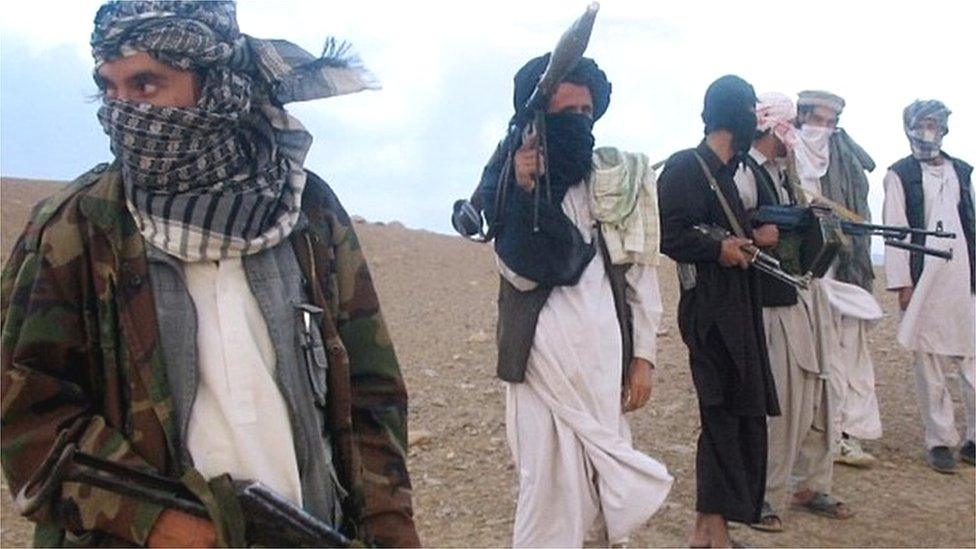
- Published7 June 2018
